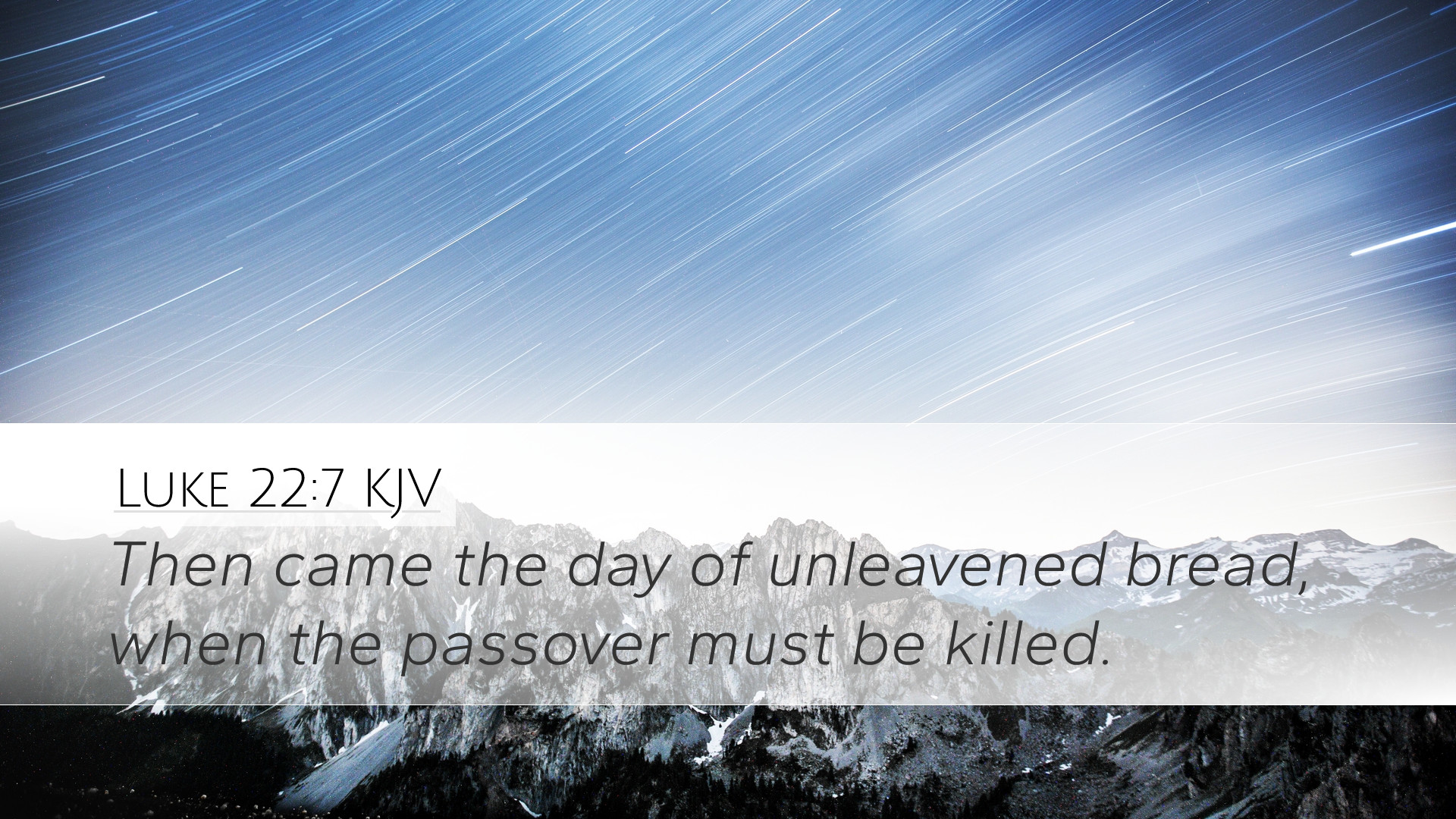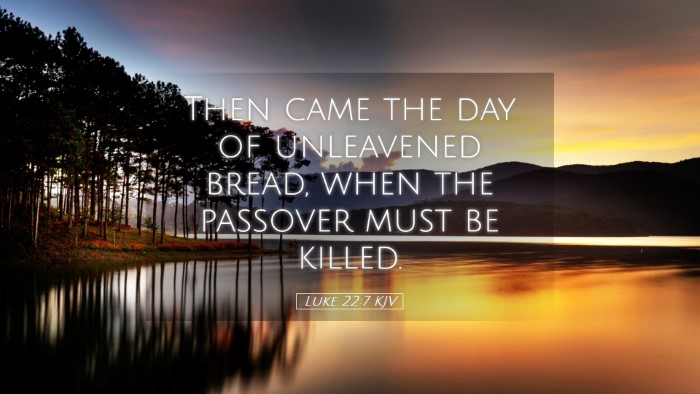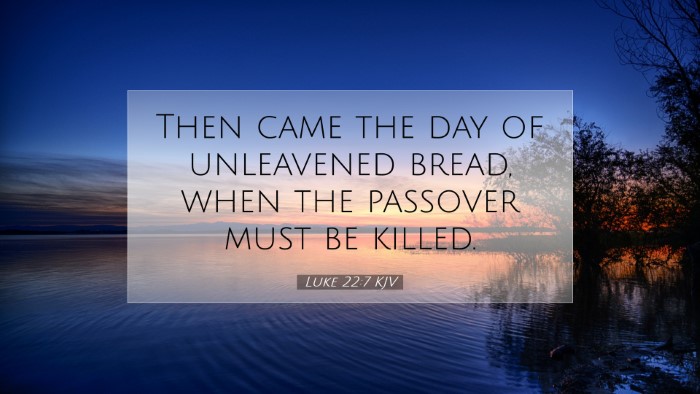Commentary on Luke 22:7
Verse: Luke 22:7 (KJV) - "Then came the day of unleavened bread, when the Passover must be killed."
Introduction
In this passage, we see the significant timing of Jesus' final days as He approaches the crucifixion. The context of the Passover is pivotal in understanding the theological implications and the sacrificial nature that would soon culminate in the atonement for humanity's sins.
Historical Context
This verse falls within the framework of the Jewish Passover feast, a critical observance that commemorates Israel's deliverance from slavery in Egypt (Exodus 12). The day of unleavened bread marks the beginning of the Passover celebration, during which families would sacrifice a lamb, an act that symbolized both remembrance and anticipation of God’s redemptive work.
Commentary Insights
-
Matthew Henry:
Henry emphasizes the importance of the Passover as it represents the deliverance not only from Egyptian bondage but also prefigures the ultimate sacrifice of Christ. He notes that the necessity of the lamb's sacrifice points to the sacrificial system established by the Mosaic law and its fulfillment in Jesus, the Lamb of God.
-
Albert Barnes:
Barnes elaborates on the significance of the term "must be killed," indicating that the death of Christ was not a consequence of human actions, but rather a divine necessity for redemption. He points out that the Passover lamb serves as a crucial type of Christ, foreshadowing His atoning sacrifice.
-
Adam Clarke:
Clarke offers a detailed exposition of the rituals associated with the Passover. He reflects on the meticulous preparations required and the symbolic importance behind the unleavened bread, which represents purity and the absence of sin—central themes in understanding Christ's sinless nature as He fulfills the Law.
Theological Implications
This verse invites deep theological reflections on atonement, deliverance, and sacrifice. The Passover lamb, sacrificed during this time, symbolizes Jesus' impending death, which serves as the ultimate fulfillment of the sacrificial system.
Significance of the Unleavened Bread
-
Symbol of Purity:
The use of unleavened bread during Passover signifies the call to holiness and purity. Clarke notes the spiritual dimension, inviting believers to examine their lives in light of Christ’s sacrifice as they partake of the bread of life.
-
Foreshadowing Christ:
This ritual foreshadows the institution of the Lord's Supper, where Jesus reinterprets the elements of bread and wine as His body and blood, establishing a new covenant (Luke 22:19-20). This pivotal moment underscores the continuity between the Old Testament sacrificial practices and New Testament fulfillment.
Application for Believers
The unfolding events surrounding the Passover call for believers to understand the weight of Christ's sacrifice and embrace the implications for their lives today:
-
Embrace Redemption:
As Christ fulfills the law and sacrifice, believers are encouraged to embrace the freedom from sin and death He provides, understanding the depth of His love and the cost of grace.
-
Call to Holiness:
The significance of unleavened bread prompts believers to pursue holiness—removing sin and leaven from their lives, reflecting on the transformative power of Christ within them.
-
Preparation for Communion:
Given the connection to the Last Supper, believers are called to approach the table with reverence and gratitude, recognizing the sacrificial love of Christ as the foundation of their faith.
Conclusion
The profound truths embedded in Luke 22:7 resonate beyond its historical narrative, solidifying the reality of Christ as the Passover Lamb. The reflections offered by Henry, Barnes, and Clarke enrich our understanding, making this verse a vital part of Christian doctrine and practice. Pastors, students, theologians, and scholars should approach this passage with reverence and a desire to grasp the fullness of its implications for faith and daily living.


